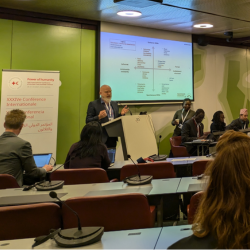-
Study
-
Quick Links
- Course Search
- Unlock Your Potential
- Still time to Apply
- Higher and Degree Apprenticeships
- Continuing Professional Development
- Book an Open Day
-
Undergraduate
- Course Search
- Application Guides
- UCAS Exhibitions
- Foundation Years
- Fees and Funding
- School & College Outreach
- Information for Parents
-
Postgraduate
- Course Search
- Application Guide
- Postgraduate Research Degrees
- Flexible Learning
- Fees and Funding
- Change Direction
- Register your Interest
-
Student Life
- Students' Union
- The Hub - Student Blog
- Accommodation
- Northumbria Sport
- Support for Students
-
Experience Northumbria
- Open Days & Events
- Virtual Tours
- Campus Tours
- Life in Newcastle
-
-
International
International
Northumbria’s global footprint touches every continent across the world, through our global partnerships across 17 institutions in 10 countries, to our 277,000 strong alumni community and 150 recruitment partners – we prepare our students for the challenges of tomorrow. Discover more about how to join Northumbria’s global family or our partnerships.
View our Global Footprint-
Quick Links
- Course Search
- Undergraduate Study
- Postgraduate Study
- Information for Parents
- London Campus
- Northumbria Pathway
- Sign up for Information
-
International Students
- Information for Students
- International Events
- Application Guide
- Entry Requirements and Education Country Agents
- Global Offices
- English Requirements
- English Language Centre
- International student support
-
International Fees and Funding
- International Undergraduate Fees
- International Undergraduate Funding
- International Masters Fees
- International Masters Funding
- International Postgraduate Research Fees
- International Postgraduate Research Funding
-
International Partners
- Agent and Representative Network
- Global Partnerships
- Global Community
-
International Mobility
- Information for Northumbria Students
- Information for Incoming Exchange Students
-
-
Business
Business
The world is changing faster than ever before. The future is there to be won by organisations who find ways to turn today's possibilities into tomorrows competitive edge. In a connected world, collaboration can be the key to success.
More on our Business Services -
Research
Research
Northumbria is a research-rich, business-focused, professional university with a global reputation for academic quality. We conduct ground-breaking research that is responsive to the science & technology, health & well being, economic and social and arts & cultural needs for the communities
Discover more about our Research -
About Us
-
About Northumbria
- Our Strategy
- Our Staff
- Place and Partnerships
- Leadership & Governance
- Academic Departments
- University Services
- History of Northumbria
- Contact us
- Online Shop
-
-
Alumni
Alumni
Northumbria University is renowned for the calibre of its business-ready graduates. Our alumni network has over 246,000 graduates based in 178 countries worldwide in a range of sectors, our alumni are making a real impact on the world.
Our Alumni - Work For Us
What will I learn on this module?
The module will engage you in a conceptual exploration of classical and contemporary theories of leadership to provide a foundation for analysing and developing yourself and others as leaders. You will consider your identity as a leader, your values, motives and goals and thereby develop intra and interpersonal awareness through critical reflection and evaluation. You will engage in a number of activities designed by the teaching team that will help you to understand what it means to be a responsible effective leader. You will also further explore the relationship between leadership and followership, and demonstrate how leadership practice is influenced by diversity. The module draws from themes such as:
? Established and emerging theories of leadership
? Leader development
? Leader identity and identity formation
? Diversity (e.g., race, ethnicity, gender, age, religion, ability, sexual orientation)
How will I learn on this module?
This module is delivered through a combination of online resources, directed learning, group learning and independent learning. The taught sessions are interactive, with a mix of taught input, participation in group discussion, group activities, case studies, and individual reflection.
There will be directed reading and experiential learning activities to complete between the taught sessions and an opportunity for you to link your theoretical understanding of the topic to your practical experience and thus to achieve a reflective and critical understanding of your role within your organisation. This directed individual learning provides a further opportunity to integrate the material covered within the module with your existing professional experience. This then feeds into the analysis required for the module assessment. The learning strategy therefore places considerable emphasis upon independent and work-based learning, alongside the formal input from the module tutor and the use of recommended sources.
How will I be supported academically on this module?
There will be an induction session before the start of the module which provides an opportunity to find out what is expected of you, the support available, access to resources and importantly, an opportunity to meet your fellow learners. Getting to know other learners in your group is of particular importance for this module, as you will be sharing your experiences of being a leader in your own organisation and as such it is essential that we facilitate a learning environment where you feel safe and supported in order to maximise your own learning about leadership and self.
As part of this module, we will provide you with a taught session on accessing our e-learning portal, accessing resources from the library, academic referencing and writing academic assignments. This will be supported by on line podcasts on the e-learning portal covering all aspects of academic study and access to the academic skills materials.
There will be an assignment briefing during the workshops covering what is expected and guidance on completion. This assignment briefing will also be available via a podcast.
What will I be expected to read on this module?
All modules at Northumbria include a range of reading materials that students are expected to engage with. Online reading lists (provided after enrolment) give you access to your reading material for your modules. The Library works in partnership with your module tutors to ensure you have access to the material that you need.
What will I be expected to achieve?
Knowledge & Understanding:
On completion of the module you will be able to:
1. Analyse your leadership approach, underlying values and motives and the evolution of your leader identity through critical reflection and evaluation;
2. Demonstrate a broad understanding of the field of leadership theory by critically analysing leadership models, frameworks, and approaches.
Intellectual / Professional skills & abilities:
On completion of the module you will be able to:
3. Evaluate the effectiveness of leadership in the context of an organization;
4. Plan for greater effectiveness as a leader, with a positive impact on others.
Personal Values Attributes (Global / Cultural awareness, Ethics, Curiosity) (PVA):
On completion of the module you will be able to:
5. Demonstrate how diversity influences leadership practice.
How will I be assessed?
Formative assessment: In each of the taught sessions you will complete a range of activities and engage in a number of discussions. Formative feedback will be provided by your tutors and your peers and this feedback will assist you in developing the necessary knowledge and understanding and personal skills to enhance your performance on the module.
Summative assessment: The summative assessment for this module comprises one major summative element and two low-stakes assignments:
Preparation for Learning Sheets (Prep Sheets) (10%)
Complete the relevant prep sheet prior to the meeting date selected for your reading circle group (4 meetings). Each prep sheet is worth 2.5% and is evaluated based on submission (i.e., yes/no) and timeliness (i.e., prior to the reading circle meeting time). This assignment ensures you are engaging toward learning outcome 2 and facilitates pursuit of learning outcomes 2, 3, 4, and 5 within your reading circle. Because this assignment is not to assess your knowledge or writing skill, no feedback will be given on this assignment.
Plagiarism Prevention Quiz (5%)
This quiz will be available for the first third of the semester and may be taken multiple times to improve your learning and your mark. The purpose of this assessment is developmental in nature to ensure that you know how to properly attribute your sources in academic writing.
Leader Interview (85%)
Interview a leader and using appropriate theory, summarise and analyse the interview; include your reflection on how your own leadership has been influenced as a result of the interview (2,500 words). This assesses module learning outcomes 1-5.
Pre-requisite(s)
None
Co-requisite(s)
None
Module abstract
Are leaders born, or can they be developed? What does it mean to be a responsible leader? The module is designed to be both stimulating and enlightening in terms of your practice as a leader and/or manager, as informed by classical and contemporary theories of leadership. The module will engage you in a process of analysing yourself and others as leaders, and how you can progress leadership through development. You will consider your identity as a leader; your values, motives and goals and thereby develop intra and interpersonal awareness. You will engage in a number of activities designed by the teaching team that will help you to understand what it means to be a responsible effective leader. You will also further explore the relationship between leadership and followership, and demonstrate how leadership practice is influenced by diversity.
Course info
Credits 10
Level of Study Postgraduate
Mode of Study 15 months
Location Singapore
City Singapore
Start September, December, March or June
All information is accurate at the time of sharing.
Full time Courses are primarily delivered via on-campus face to face learning but could include elements of online learning. Most courses run as planned and as promoted on our website and via our marketing materials, but if there are any substantial changes (as determined by the Competition and Markets Authority) to a course or there is the potential that course may be withdrawn, we will notify all affected applicants as soon as possible with advice and guidance regarding their options. It is also important to be aware that optional modules listed on course pages may be subject to change depending on uptake numbers each year.
Contact time is subject to increase or decrease in line with possible restrictions imposed by the government or the University in the interest of maintaining the health and safety and wellbeing of students, staff, and visitors if this is deemed necessary in future.
Useful Links
Find out about our distinctive approach at
www.northumbria.ac.uk/exp
Admissions Terms and Conditions
northumbria.ac.uk/terms
Fees and Funding
northumbria.ac.uk/fees
Admissions Policy
northumbria.ac.uk/adpolicy
Admissions Complaints Policy
northumbria.ac.uk/complaints









